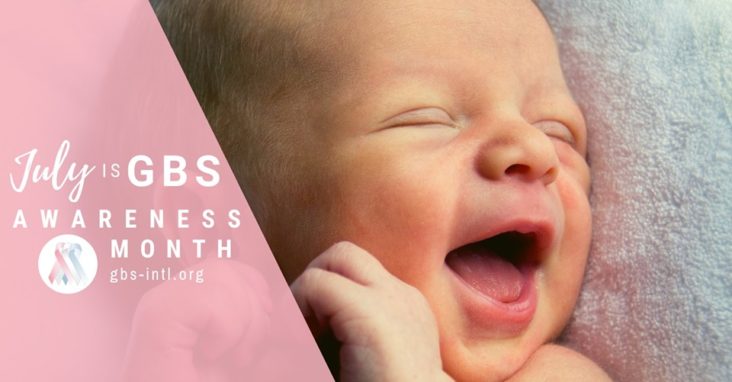As part of July Group B Strep Awareness Month, Women’s Telehealth encourages all pregnant women to make sure they complete their Group B Strep testing as part of routine prenatal care.
Group B Streptococcus (GBS) lives in the body naturally and it is a bacteria normally found in 25% of health adult women’s rectum or vagina. Women who test positive for GBS are considered “colonized” or a “carrier.”
GBS is not normally harmful to the mother, but can be harmful to the newborn. A pregnant woman can pass on this infection to the baby during delivery. Not every mom will have symptoms of a GBS infection and not every baby born to a mom with a GBS infection will become ill. While GBS disease can be deadly, there are steps pregnant women can take to help protect their babies.
GBS Testing
The CDC recommends all pregnant women get tested for GBS between 35-37 weeks gestation. The most accurate results are within a 5 week period prior to delivery. The rectum and vagina are swabbed during the antepartum OB appointment and the sample is sent to the lab for processing. The results are usually available with a few days.
Rapid screen GBS tests are also available if a woman presents at a facility to deliver and has not had a GBS test completed. If a pregnant woman tests positive, treatment is considered.
Treatment
Intravenous antibiotics (usually Penicillin for non-allergic patients) are given to women who are at increased risk of having a baby who will develop GBS disease. The antibiotics help protect babies from infection, but only if given during labor. Antibiotics are administered from the onset of labor and continue every 4 hours through to delivery.
The following symptoms may indicate a higher risk of delivering a baby with GBS:
- Labor or membrane rupture before 37 weeks gestation
- Membrane rupture more than 18 hours prior to delivery
- Fever during labor
- Previous baby born with GBS
- UTI as a result of GBS in pregnancy
If the baby is delivered via C-section and there is no labor or rupture of membranes, antibiotic treatment is not given. About 1 out of 200 babies of moms with GBS will contract the infection without IV antibiotic treatment. With IV antibiotic treatment, the incidence of babies contracting the infection is lowered to 1 in 4,000.
How GPS Affects Newborns
Early-onset GBS occurs when a baby is infected with GBS within the 1st week of life. Roughly half of babies born with GBS infection have early- onset symptoms including: sepsis, pneumonia, meningitis, breathing problems, heart rate and blood pressure instability and GI and kidney problems. In severe cases, stillbirth may result. Approximately 5% of babies with GBS infections at birth will die.
Late-onset GBS may occur after one week to several months of age. Signs of late-onset GBS include changes in your baby’s eating habits, such as feeding poorly, refusing to eat or not waking for feeding. Changes in baby’s skin, including blue, gray or pale skin due to lack of oxygen, or blotchy or red skin may also be signs of GBS. In the U.S., late-onset GBS has been the leading cause of meningitis in newborns in the first three months of life.
Prevention
Although research is continuing, there is currently no vaccine for Group B Strep infection. The best two ways to prevent GBS during the first week of a newborn’s life are:
- Testing pregnant women for GBS bacteria
- Giving antibiotics, during labor, to women at increased risk
For additional information, please visit:
https://www.cdc.gov/groupbstrep/index.html or https://www.marchofdimes.org/complications/group-b-strep-infection.aspx
Don’t put your un-born baby at risk! Learn the facts and get tested!
~Tanya Mack, President


